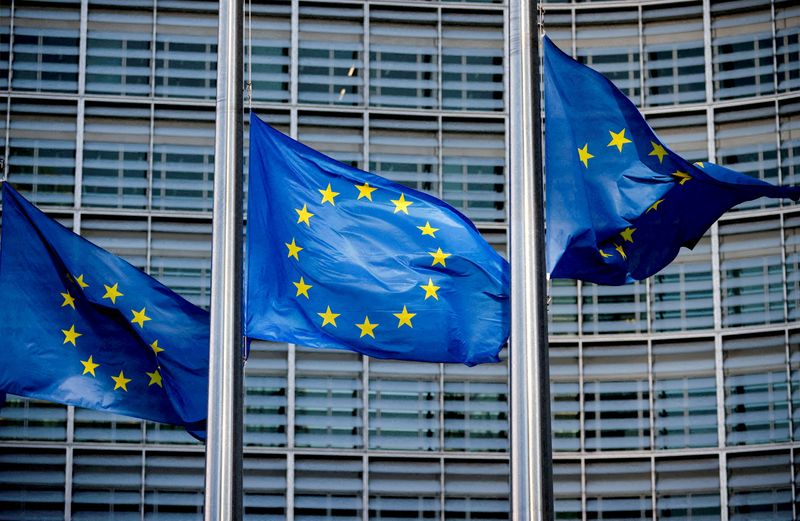By Philip Blenkinsop and Krisztina Than
BUDAPEST (Reuters) – Donald Trump’s return to power and the collapse of Germany’s ruling coalition will be major talking points at a meeting of nearly 50 European leaders and an EU summit in Budapest on Thursday and Friday to discuss support for Ukraine, migration, economic security and waning EU competitiveness.
European leaders have broadly congratulated Trump but face uncertainty over U.S. backing for Ukraine against Russia’s invasion, the U.S. commitment to the NATO military alliance and the prospect of tariffs on their exports to the United States.
Adding to the uncertainty hanging over the Budapest gatherings, Germany’s three-party government broke apart on Wednesday evening as Chancellor Olaf Scholz sacked his finance minister and paved the way for a general election.
Some are officials also nervous about the summit plans of Hungarian Prime Minister Viktor Orban, who has been criticised by European Union peers over his trips to Moscow and Georgia during his country’s EU presidency, and said that he would pop champagne corks if Trump won.
Speculation about surprises that host Orban might spring has included hooking up leaders by video link with Trump, whose defeat of Democratic Vice President Kamala Harris in Tuesday’s election was celebrated by the right-wing nationalist Hungarian leader.
The agenda of the first meeting, the wider European Political Community, which includes non-EU states such as Britain, features an exchange that the European Commission said should yield a renewed commitment to support Ukraine before break-out sessions on migration and economic security.
The latter topic would touch on closer scrutiny of foreign investments and more coordinated controls on exports and outflows of technologies to rivals such as China. U.S. pressure for such controls could intensify when Trump returns to the White House in January.
In the evening the EU’s 27 leaders will weigh transatlantic relations, as well as Georgia, where the ruling Georgian Dream party, seen as increasingly pro-Russian, laimed victory in a disputed Oct. 26 election. The EU has frozen Georgia’s membership bid over concerns about democratic backsliding.
EU officials hope the outcome of the EU leaders’ dinner session will be a joint position of congratulating Trump and highlighting the importance of good U.S.-EU ties, while stressing that the EU has its own agenda and its desire to stick to global trading rules.
Leaders could return to the topic for a more substantial discussion when they convene in Brussels in December, a senior EU official said.
The EU summit will conclude on Friday with a debate on EU competitiveness, including a presentation by former European Central Bank chief Mario Draghi, with his successor Christine Lagarde also present.
At the European Commission’s request, Draghi wrote a report on how the EU should keep its greening economy competitive amid challenges from China and the United States at a time of increased global friction.
In his nearly 400-page report, Draghi said the bloc needed investment of 750-800 billion euros per year, but frugal EU countries have taken issue with the idea that some of this should come from joint EU assets.

